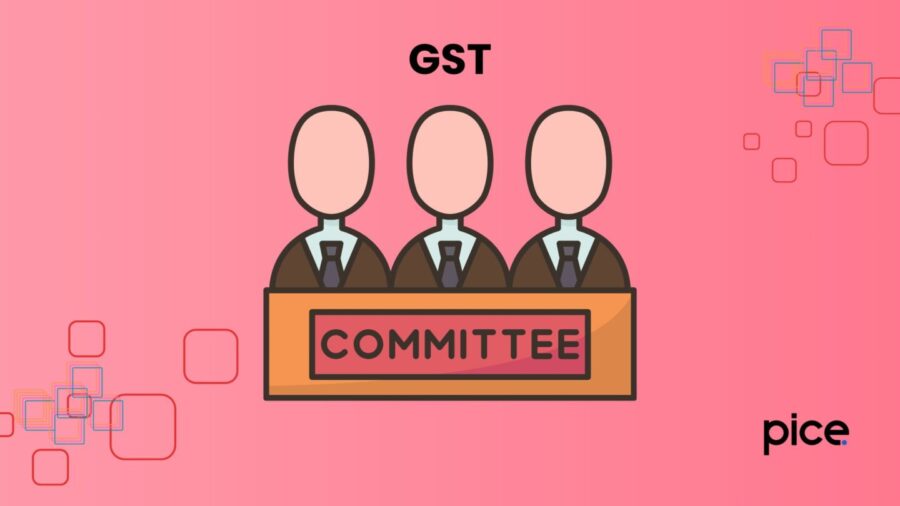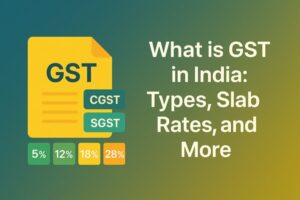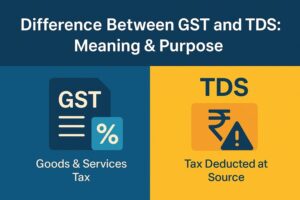Goods and Services Tax Council: A Detailed Guide
- 11 Sep 24
- 10 mins

Goods and Services Tax Council: A Detailed Guide
- Why Is a GST Council Necessary?
- What Is the Structure of the GST Council?
- Recommendations Made by the GST Council
- Main Features of the GST Council
- Vision of the Goods and Services Tax Council
- Mission of the GST Council
- How Does the GST Council Operate?
- Roles and Responsibilities of the GST Council
- Importance of the GST Council
- What Constitutes a Quorum for GST Council Meetings?
- How Does the GST Council Handle Disputes?
- Creation of the Goods and Services Tax Council
- The Bottom Line
Key Takeaways
- The GST Council is the key decision-making body for enforcing and amending GST laws, headed by the Union Finance Minister, with state finance ministers as members.
- The Council ensures a unified tax system in India, addressing GST rates, exemptions, and compliance rules to maintain a seamless national market.
- GST Council decisions are made through a majority voting system, where the Central Government holds one-third and State Governments hold two-thirds of voting rights.
- The Council plays a critical role in resolving tax disputes between the central and state governments and addressing revenue loss compensation for states.
- Regular GST Council meetings provide businesses with predictable tax rates and regulations, promoting ease of compliance and transparency in the taxation process.
India has an indirect tax system, known as the Goods and Services Tax (GST), which applies a uniform tax rate across the country. The government levies this tax on businesses' supply of goods and services. This tax is, however, regulated by a Council of Indian Ministers from the Central and States. In this blog, we will walk you through a comprehensive guide on what is the GST Council, while highlighting its roles, importance, recommendations and main features to enhance your awareness of the GST regulatory body.
Why Is a GST Council Necessary?
The GST Council is an apex decision-making body that enforces, reconciles and amends laws and regulations and makes major decisions pertaining to goods and services tax in India. The Union Finance Minister heads the committee with assistance from state finance ministers. Thus, the council is the governing and key decision-making body responsible for GST implementation in India.
This committee decides the principles of levy, tax rates, tax exemptions, GST annual return filing process, due dates, tax laws and compliance deadlines. The committee also decides special provisions for specific Indian states and union territories.
The intervention of the committeein law enforcement and amendment ensures a unified taxation system in India in terms of goods and services. The latest GST council was held on 22nd June 2024, which marked the date for the 53rd meeting, chaired by the Ministry of Finance (MoF), headed by Finance Minister Nirmala Sitharaman.
What Is the Structure of the GST Council?

The council is a joint forum of the Central and State governments of India under Article 279 (1). The structure of the council is as follows:
| Designation of the Person | Designation in the Council |
| Union Finance Minister | Chairperson |
| Union Minister of State - In charge of Revenue of Finance | Member |
| Minister in charge of finance or taxation or any other Minister nominated by each state government | Members |
Recommendations Made by the GST Council
Article 279A (4) mentions that the council can recommend certain factors to the Union and states regarding goods and services and exemptions on the following aspects:
- Place of supply
- Threshold limits
- GST rate on goods as well as services
- Special GST rates to raise additional revenue during natural calamities or disasters
- Special rates for certain Indian states
Main Features of the GST Council
Here are the salient features of the GST Council:
- The Council office is established in New Delhi.
- The Ex-officio Secretary of the council is the Revenue Secretary.
- The Central Board of Indirect Taxes and Customs (CBIC) holds a permanent seat as a non-voting invitee to all GST Council meetings, with the Chairperson playing a key role in the proceedings.
- There needs to be a post for an additional Secretary in the Council.
- The Council Secretariat needs to appoint officers on a deputation basis from the Central and State Governments.
Vision of the Goods and Services Tax Council
The vision of the Council is to establish the highest standard of the cooperative federation in the Council’s functioning, being the first constitutional body or federal body to enforce, amend and reconcile laws related to GST.
Mission of the GST Council
The mission of the Council is to create a GST structure with a wider consultation process, ensuring the structure is information technology-oriented and user-friendly.
How Does the GST Council Operate?
The Council makes decisions at the meetings with a three-fourths majority present and voting. At least 50% of the total number of members need to be present to conduct a Council meeting. Further, one-third of the total voting rights are reserved with the Central Government while two-thirds of the voting rights are reserved with the State Governments.
The proceedings of the Council will not be deemed invalid if there is a vacancy in the constitution of the Council, defects are identified in the appointment of members of the Council, or there are procedural irregularities not affecting the merits of the case.
Roles and Responsibilities of the GST Council
The roles and responsibilities of the Council are as follows:
- The taxes, compensation cess and surcharges that the Central and State impose will be under the unified taxation system.
- This Council declares the list of goods and services exempted from GST.
- The Council enforces and amends GST laws, principles of levying GST and apportionment of GST levied in inter-state trade and place of supply.
- This Council declares the threshold limit of GST exemption.
- The Council frames the floor rates with bands of GST.
- This Council additionally declares special rates to raise additional resources during a natural calamity or disaster and for special category states
Additional Roles of the GST Council
The Council has additional roles as follows:
- The Council is responsible for recommending GST levy dates for petroleum crude, high-speed diesel, motor spirit (petrol), natural gas and aviation turbine fuel.
- This Council plays a significant role in adjudicating disputes between the Centre and states, between the Centre and certain states on one side and other states on the other side and between multiple states.
- The Council is responsible for recommending compensation to the states for loss of revenue arising due to GST introduction for five years wherein the Parliament considers these recommendations to determine the compensation.
Importance of the GST Council
Here is the importance of the Council in India:
- Predictability
Businesses are significantly dependent on the Council’s rules and regulations for taxation purposes. Regular meetings held by the Council present streamlined guidelines and stable tax rates for businesses, helping them in seamless operations.
- Ease of Compliance
The Council has simplified GST return filing and payment processes with easy paperwork. This helps businesses reduce entire costs and time in the taxation process, thereby focusing on business functions.
- Transparency
The transparency in the Council's decisions helps the stakeholders understand the rationale behind rules and regulations. As a result, the stakeholders can comply with the norms conveniently.
- Adherence to International Standards
The rules and regulations set by the GST Council adhere to the international standards of taxation laws. As a result, it improves India's position in the international market.
What Constitutes a Quorum for GST Council Meetings?
The quorum of the Council meetings helps it operate seamlessly. Here are the quorum of GST meetings:
- To conduct a valid meeting, there needs to be at least 50% of the total Council members present.
- Decisions at the meetings need to be backed by a 75% majority of weighted votes cast at the Council.
- Article 279A further presents the criteria for Council meetings as follows:
- One-third of the Central Government weightage needs to be present at the meetings.
- Two-thirds of the State Government weightage needs to be present at the Council meetings.
- No decision or proceedings will be considered invalid if there is a vacancy in the Council, defects in the Council constitution, defects in appointing individual Council members and if there is a case of non-compliance with a procedure.
How Does the GST Council Handle Disputes?
The GST Council is responsible for resolving the following disputes:
- Disputes between the Central Government and one of the State Governments
- Conflicts between the Central Government supported by a few State Governments while other State Governments on the other side
- Disputes between multiple State Governments resulting due to GST Council recommendation implementation
Creation of the Goods and Services Tax Council
The Council was created by the Indian Constitution (122nd Amendment) Bill 2016, approved by the then-Indian President on 8th September 2016. The Bill aimed to introduce a goods and services tax (GST) in the country.
Further, Article 279A was introduced and it came into effect in the same month of that year. At a Union Cabinet meeting, the GST Council and the GST Council’s Secretariat were established on 12th September 2016. Thereon, meetings of the Council are conducted by the Finance Minister of India.
The Bottom Line
As we began with the question of what is the GST Council, here is how to sum it up. This Council enforces, amends and reconciles GST laws to ensure that a unified tax regime prevails in India. Further, this Council makes decisions with a one-third majority from the Central Government and a two-thirds majority from the State Governments, considering all the indirect taxation aspects of Indian states and union territories.
 By
By 
















